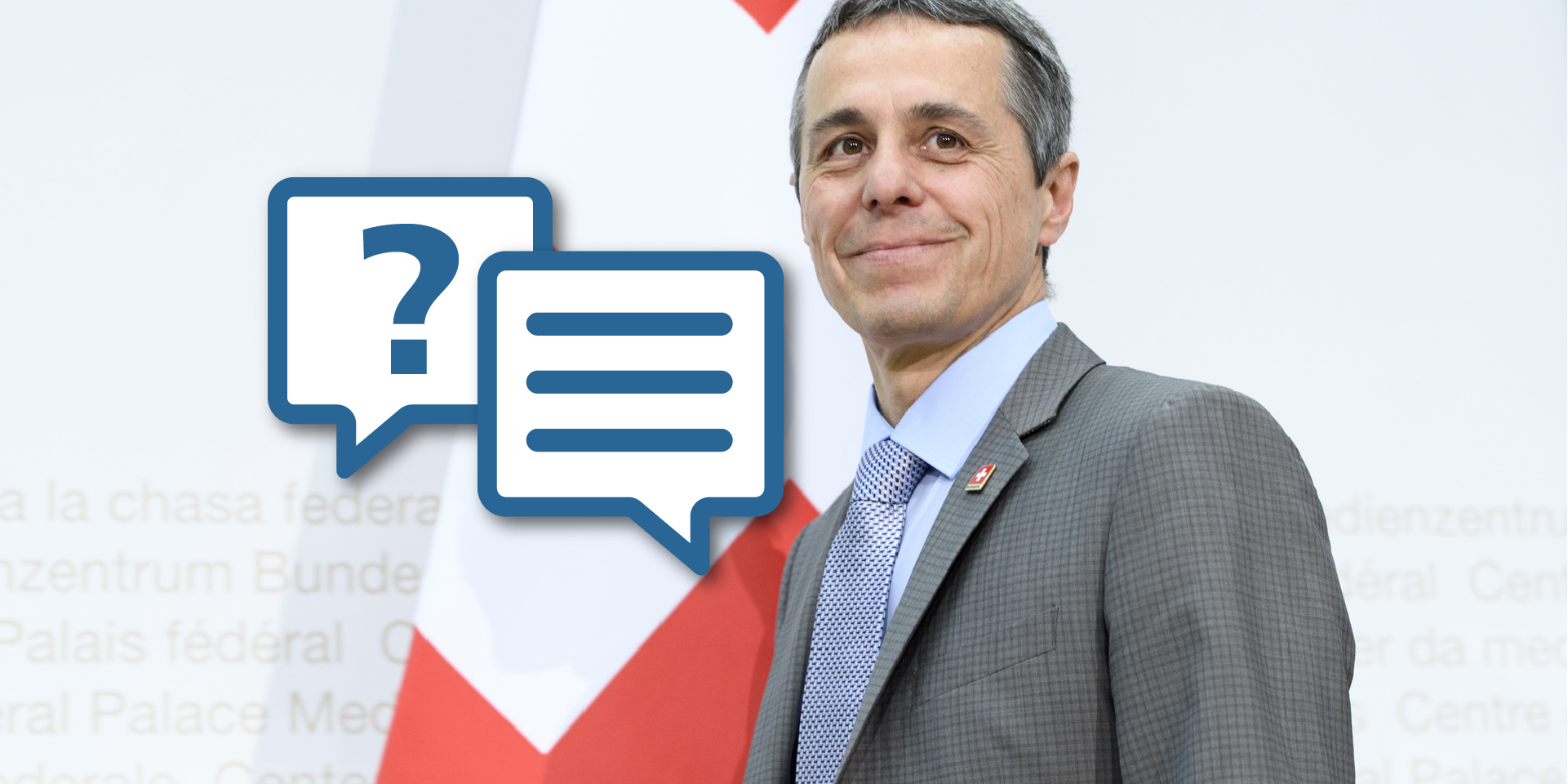"Some of the notes might change, but the music remains essentially the same."
In an interview with the NZZ, Federal Councillor Ignazio Cassis talks about the upcoming negotiations with the EU, the importance of an institutional framework agreement for the Swiss economy, and the election of Livia Leu as new state secretary of the FDFA.

In an interview with the NZZ, Federal Councillor Ignazio Cassis talks about the negotiations with the EU and the institutional framework agreement. © FDFA
On 25 September 2020 the Swiss electorate voted clearly in favour of a regulated relationship between Switzerland and the EU, and the next few weeks will be devoted to working out how this relationship is to be structured. An institutional agreement between Switzerland and the EU should consolidate mutual market access in a way that is fit for the future. "After an extensive consultation process, in June 2019 the Federal Council informed the EU in writing where it would like to see improvements. In the coming weeks we will make concrete proposals to the EU in this regard," explained Cassis in an interview with the Neue Zürcher Zeitung (NZZ).
Baden-Württemberg and Bavaria more important than China
The head of the Federal Department of Foreign Affairs (FDFA) believes that a regulated relationship with the EU, especially with our neighbouring countries, is of great importance to Switzerland. "It ensures our future prosperity. Every second franc we earn is from our export industry. And we do 60% of our trade with the EU. If we want to continue to enjoy privileged access to the EU's single market, we must conclude an institutional framework agreement with the EU," said Cassis.
If Switzerland were to reject such an agreement, the Swiss economy would most likely have to reorient itself and seek out other markets. "Bear in mind that the volume of trade between Switzerland and Baden-Württemberg and Bavaria is far greater than that with China."
Trade relations comparable to a smartphone
In his interview with the NZZ, Mr Cassis compares the current agreements between Switzerland and the EU member states with apps on a smartphone, saying that you have to update apps and software on a regular basis in order to take full advantage of the benefits they provide. The same applies to the relationship between Switzerland and the EU: without a framework agreement, the current bilateral treaties would be gradually eroded.
"Like apps on a smartphone, agreements lose some of their functionality without regular updates. New EU standards are no longer automatically adopted by Switzerland, but rather by autonomous adoption. The EU has come to terms with this, but in future it won't be so easy to maintain this arrangement," explains Cassis. "Without a framework agreement, trade with the EU will undoubtedly decline, making us less attractive to investors. In the longer term, this will have an impact on jobs and our prosperity will dwindle."
Sound experience with excellent negotiating skills
In order to address the urgently needed update in Swiss–EU relations, the Federal Council appointed a new state secretary at its meeting on 14 October 2020. Livia Leu, who up until now was Switzerland's ambassador in Paris, will take over as head of the Directorate for European Affairs (DEA) with immediate effect, assuming the role of chief negotiator with the EU.
"Her wealth of broad experience" was the deciding factor, said Cassis. "In addition, as Swiss ambassador to France, she has been following EU policy very closely over the past two years. She has demonstrated her excellent negotiating skills in various situations, for example in Tehran. We are certain that this will stand her in good stead for her talks with Brussels."
Ms Leu is a sound, experienced, calm individual with excellent negotiating skills, all of which are qualities that the new state secretary will need when the discussions with the EU commence on the three controversial issues of state aid, wage protection and the Citizens' Rights Directive. The Federal Council will set out Switzerland's official position in the coming weeks. "The negotiating mandate has not changed. Some of the notes might change, but the music remains essentially the same," stresses Cassis.
